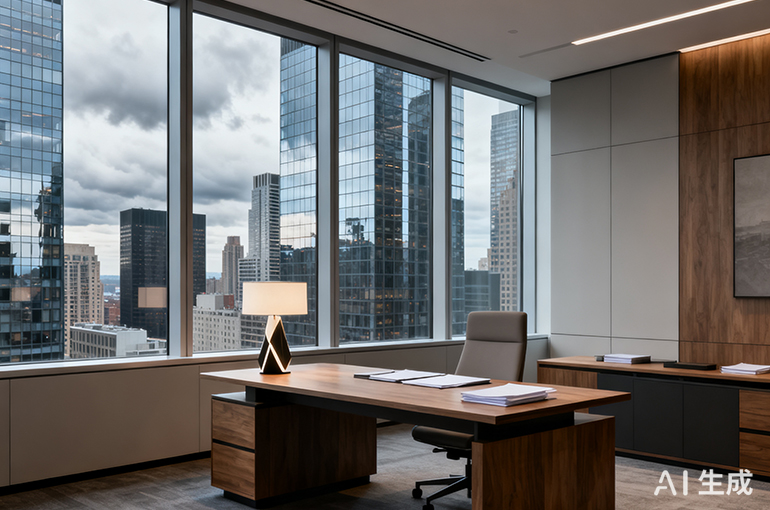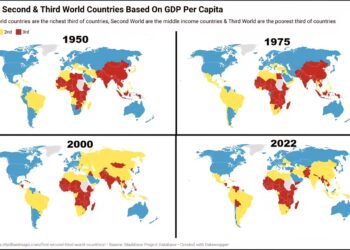Select Language:
The China regional director of a leading premium flexible office space provider revealed the company’s strategic approach to maintaining success amidst a challenging Chinese office market characterized by rising vacancy rates.
The company supplies high-end office environments in prestigious locations to meet the needs of multinational corporations, particularly those in finance and technology sectors, offering them consistent value-added services, according to the firm’s managing director for China.

Established in Hong Kong in 1994, the company now manages over 240 office spaces across 37 cities in 15 countries. Of these, 80 are situated in 13 Chinese cities, all within Grade-A buildings in prime central business districts.
As of August 31, the average occupancy rate in mainland China approached 90%, with Shanghai exceeding 89%, and Beijing around 86-87%, data shared by the regional director indicated.
According to real estate consultancy Jones Lang LaSalle, the rent for Grade-A offices in Beijing dropped 16% last year compared to the previous year. Meanwhile, vacancy rates in Shanghai and Shenzhen offices rose to 23.6% and 27.8%, respectively, in the second quarter of this year.
The company focuses on the niche high-end flexible office segment to differentiate itself from competitors, such as a major player known for its rapid expansion and high valuations, which filed for bankruptcy this year. Unlike those providers covering every price range, this firm has chosen to specialize.
“Our growth strategy is driven by actual client demand rather than financial pressures,” the director explained. For example, after reaching a 92% occupancy rate, the company opened its seventh space in Tianjin this year.
By targeting only the premium market, the company narrows its potential client base, since its high prices make it less accessible for many startups and small to medium-sized enterprises, which are the primary customers of broader-market providers. An industry veteran with over 20 years of experience noted that this focus on high-end clients also shields the company from market fluctuations that adversely affected its competitors.
More than 70% of the company’s clients are multinationals, with 27% from banking and finance, followed by tech and professional services. To meet their high standards, the company concentrates on prestigious locations like Nanjing West Road, Lujiazui, and Xintiandi in Shanghai, and Guomao in Beijing.
Ding highlighted that premium office buildings tend to be more resilient in economic downturns. “Similar to residential properties, prime-location offices experience smaller swings in value compared to suburban properties,” she said.
An additional element of the company’s growth plan is providing clients with stability and value. The average lease term is now 66 months, with renewal rates exceeding 70%, and in Beijing and Shanghai, renewal rates surpass 80%, she noted.
Over her 17-year tenure, only three offices on the Chinese mainland have closed, all due to leases naturally expiring. In the first nine months of this year, the company renewed approximately 20 leases without plans for closures, she said.
The company also offers a flexible ecosystem for clients, allowing them to switch locations and office sizes across its global network, and access services such as IT support, company registration, and recruitment assistance.
Its in-house IT team is equipped to meet the stringent data security needs of financial and tech clients. “Our prices might not be the lowest, but we deliver certainty and comprehensive value,” she explained. The company has maintained steady operations since inception, with no unexpected closures, providing reassurance during uncertain market conditions.
Adapting to New Trends
As a platform serving multinational companies, the provider offers insights into China’s business climate and international capital flows.
Increasingly, Chinese companies are expanding abroad, shifting focus toward the Middle East rather than Southeast Asia, with bilateral investments in both regions rising significantly, she said. Emerging sectors like renewable energy and biopharmaceuticals are also fueling demand.
The company now plays a key role bridging multinationals and local governments. For instance, its new space in Guomao was designated as the Beijing CBD Global Investment Promotion Liaison Station in May, positioning it as a facilitator for targeted investment.
The rise of hybrid work models has been notable in recent years. The director views this as an opportunity rather than a threat. While some core office space demand may diminish, the appetite for flexible, premium offerings remains strong and aligns with the company’s portfolio.
In the era of artificial intelligence, the company leverages AI and big data to enhance its services. “With over 57,000 members worldwide, our database is a valuable resource,” she said.
AI enables the company to analyze client data for tailored product offerings and optimized solutions, moving beyond traditional sales methods. Meanwhile, AI also fine-tunes operational details and anticipates client needs.
When asked about concerns over the economic slowdown, she mentioned that the company’s founder navigated the challenges presented by SARS, the Asian Financial Crisis, and the 2008 global downturn. “Compared to those periods, current challenges are manageable,” she stated.
The company’s diversified portfolio helps spread risk, with strong performances in Southeast Asia, the Middle East, Japan, and Australia balancing the challenges faced in China, she explained.
Oxford Economics recently described China’s office market as potentially facing a “lost decade,” citing high vacancy and oversupply issues hindering recovery before 2030. Nevertheless, the company’s success indicates opportunities to thrive even amid economic downturns.







